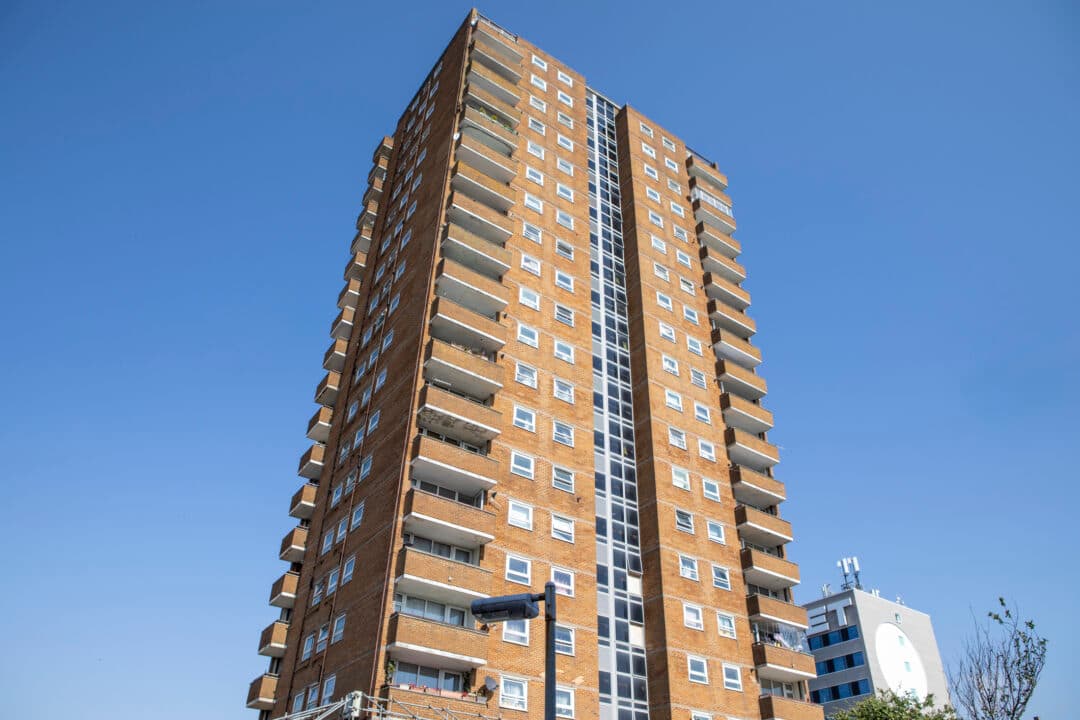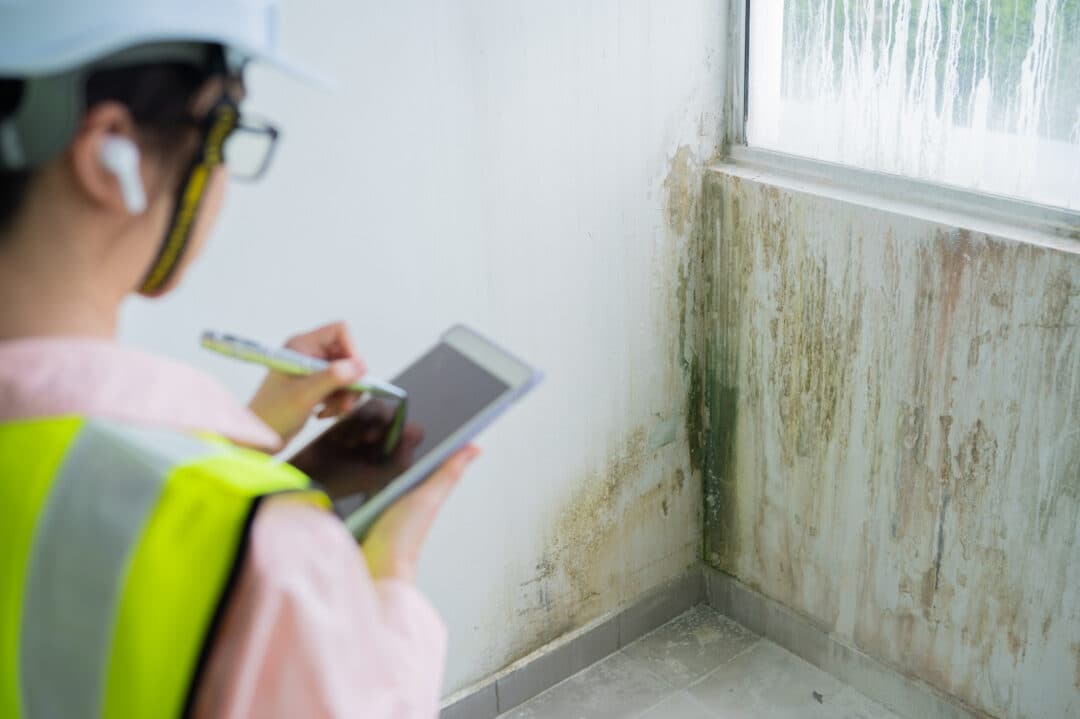Fire Safety in High Rise Flats: How Safe Is Your Building?

Fire Safety in High Rise Flats: How Safe Is Your Building?
POV: You come home from work, tired and hungry. The lift isn’t working, so the only way to reach your 12th floor flat is to take the stairs. As you slowly ascend, passing through multiple stairwells, you notice the fire doors.
They’re not hard to miss, with their blue signage, but what also sticks out is their state of repair. Some are tatty and propped open by bricks, while another is missing its self-closer. The fire door on the eighth floor has been vandalised, while the one on your floor never shuts properly. It has been like that for months, staying ajar as you walk away.
How much thought do you give to the fire doors you pass by? Do you know what role they play should there be a fire in your building? Could you recognise if a fire door was not fit for purpose? How does the condition of the fire doors you see daily make you feel?
Feeling safe in your high rise flat
Following the Grenfell Tower fire in 2017, the Ministry for Housing, Communities and Local Government (MHCLG) wanted to establish public sentiment on matters of fire safety. An investigation was commissioned and the subsequent report, Feeling Safe, was published in 2019. It revealed the perceptions of fire safety among residents living in high rise buildings (those with at least six floors).
Residents from three areas across England where there are concentrations of high residential buildings (London, the West Midlands and the North West) took part in a series of focus groups. There was a broad cross-section of society represented: those living on different floors, different genders, ages, ethnicities and parents/guardians of children all participated for balance. The report also included those with varying tenures – owner occupiers, social renters and private renters.
Post Grenfell concerns
You may relate to the findings. While many participants felt fire safety was being taken more seriously post Grenfell, residents from all tenures expressed concerns about fire safety in high rise buildings.
People were concerned about how to prevent a fire and what would happen if a fire occurred. Worries were greatest among those living on upper floors and in older buildings, while trust was evidenced when residents had faith in those responsible for the management and design of the building.
The report also highlighted how confidence can be knocked if residents feel building managers prioritise cost savings over fire safety, and some felt there was a lack of resident engagement in building management, especially among social housing tenants.
What would reassure you?
About now, your thoughts might be returning to the fire doors in your building and the questions you may have. You’re not alone in feeling ill-informed about fire safety or unprepared for an event.
The report went on to detail that high rise residents would find ‘independent verification of the maintenance of fire safety equipment and the quality of the building’ reassuring. Poor building maintenance was also highlighted, with residents wanting more consulting, checking and listening on fire safety matters.
Those living in high rise buildings would also feel reassured if the responsible person distributed information packs to every resident, outlining the fire safety measures in their building, what to do in the event of a fire emergency and the contact details of the responsible person. This would reinforce that fire safety was being taken seriously. Residents also wanted to be told that fire doors would open and what their escape routes were.
The importance of fire doors
If you are wondering just how important fire doors are, issues including under‑performance, poor installation, lack of maintenance and missing components, like self‑closers, are lethal. In fact, the public enquiry into the Grenfell Tower fire identified several fire door issues that contributed to the number of fatalities and injuries.
The enquiry noted that several fire doors from Grenfell’s 4th to 23rd floors did not meet building regulation standards. Additionally, some doors had glazing that wasn’t accounted for in test data, some door closers failed and some doors were propped open. Sound familiar?
Substandard fire doors were identified as a systemic issue in high rise buildings and the public enquiry quite rightly set freeholders, landlords, housing associations and property managers on a path to more frequent, thorough fire door inspections and regular maintenance.
Inspections inspire confidence
As such, you may see someone in your building – possibly a Viewber – conducting five-point fire door checks. They’ll be looking at the seals, closing mechanisms, hinges and glass. They’ll be noting if there’s signs of vandalism, rot or damage, and they’ll also jot down if the door has been propped open or it wasn’t shut properly when they arrived.
Seeing a Viewber or another third party inspecting your building’s fire doors is a comforting sign – it tells you the building owner/manager is taking fire safety seriously. If you feel your building’s fire doors are in poor condition or the behaviour of fellow residents is jeopardising safety, you don’t have to wait for a fire door inspection to voice your concerns. Contact the building manager, housing association or landlord at any time – your actions just may prevent a major incident.
Supporting Fire Door Safety Week 2025
Viewber is proud to play an integral part in the UK’s fire door inspection/replacement/remediation programme. A Viewber can undertake a five-point fire door check in any high rise building across the nation, giving valuable compliance support to property providers and managers. We are also proud to support The British Woodworking Federation Group’s Fire Door Safety Week, which takes place between the 22nd and 26th September 2025 – find out more here >>
Feel free to pass on Viewber’s details to your landlord, housing association or property manager if you have any fire safety concerns.



